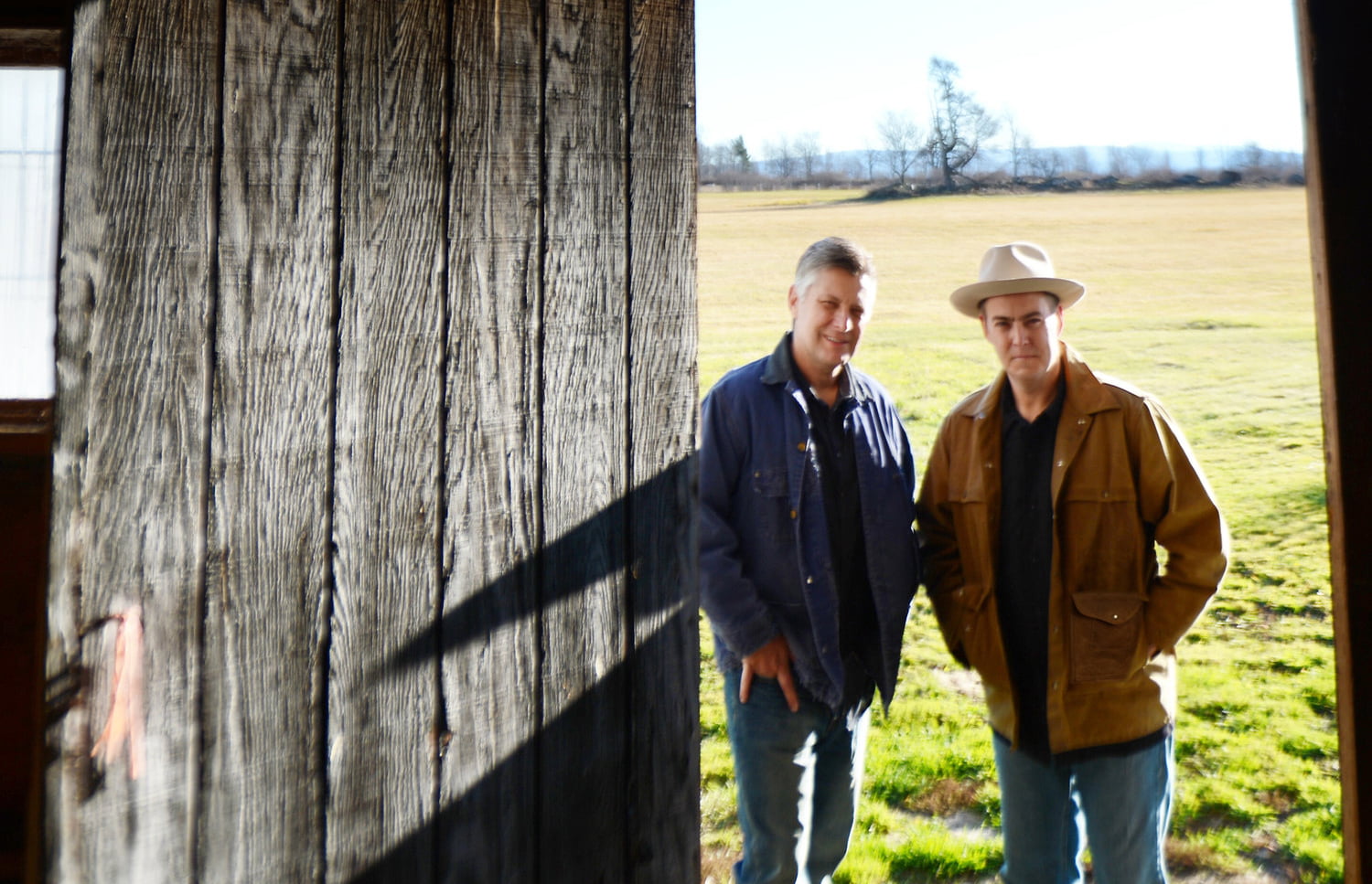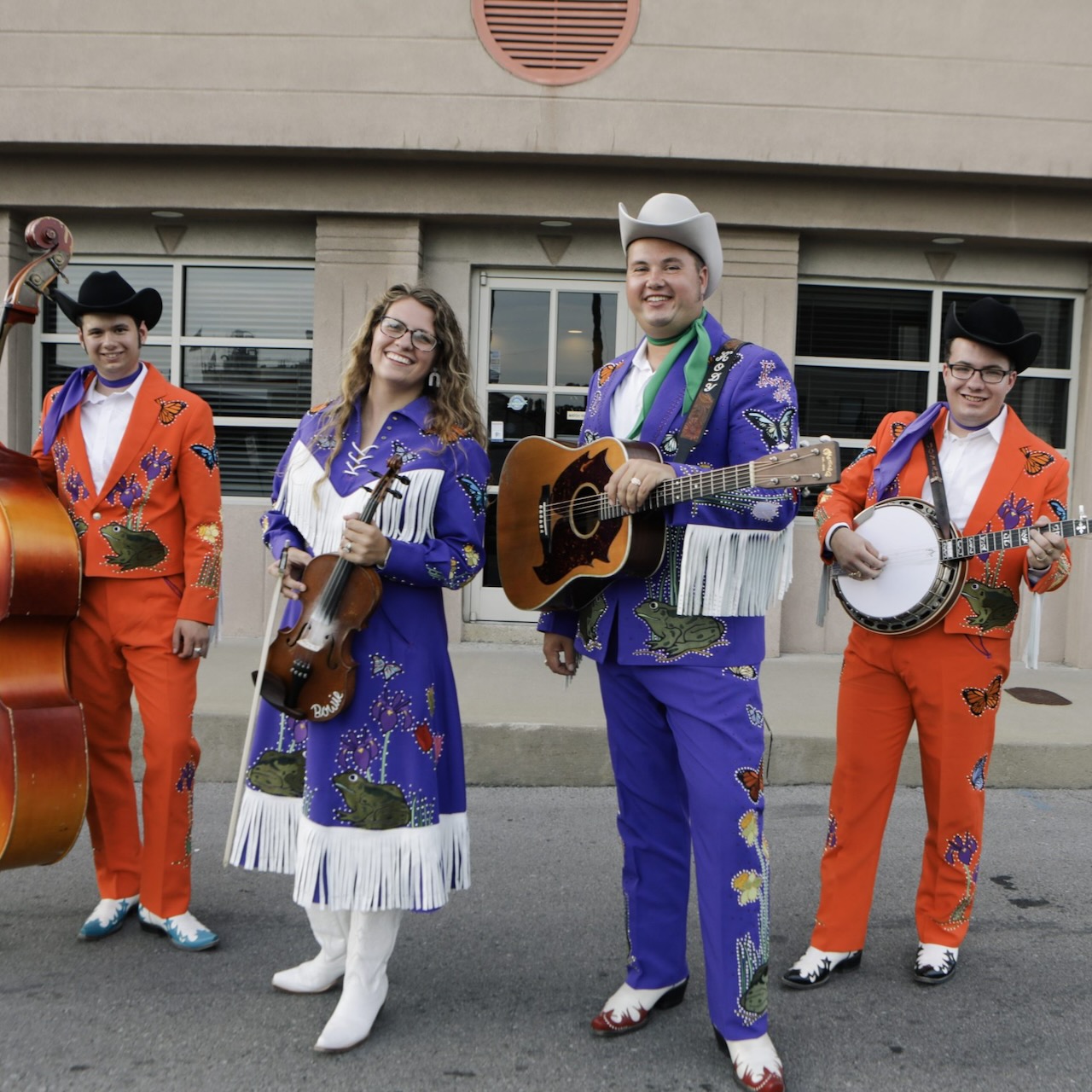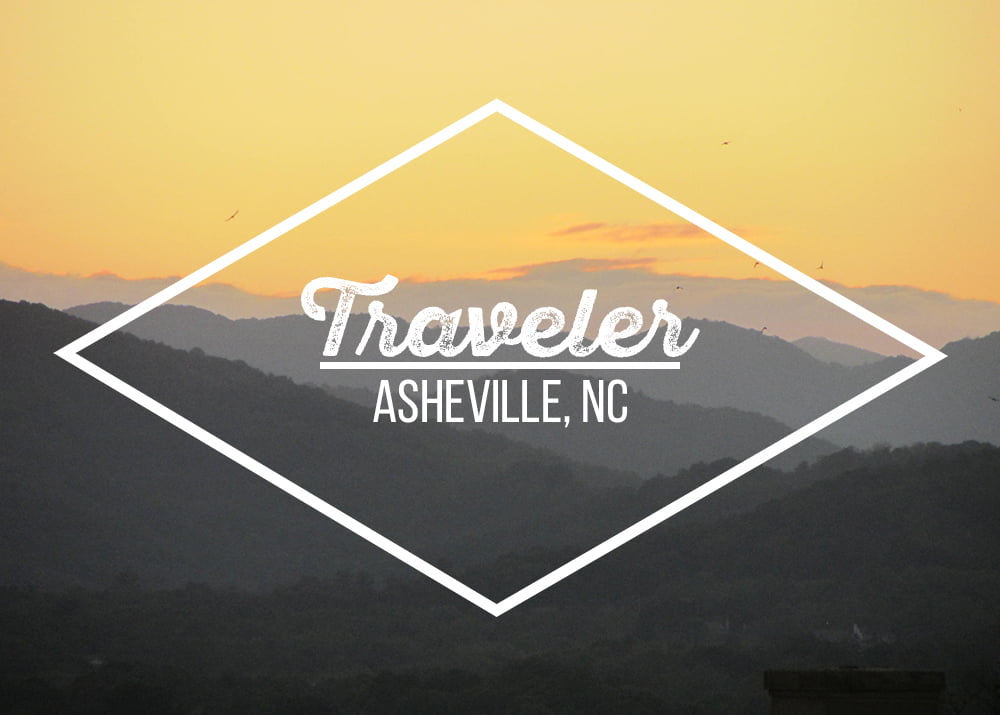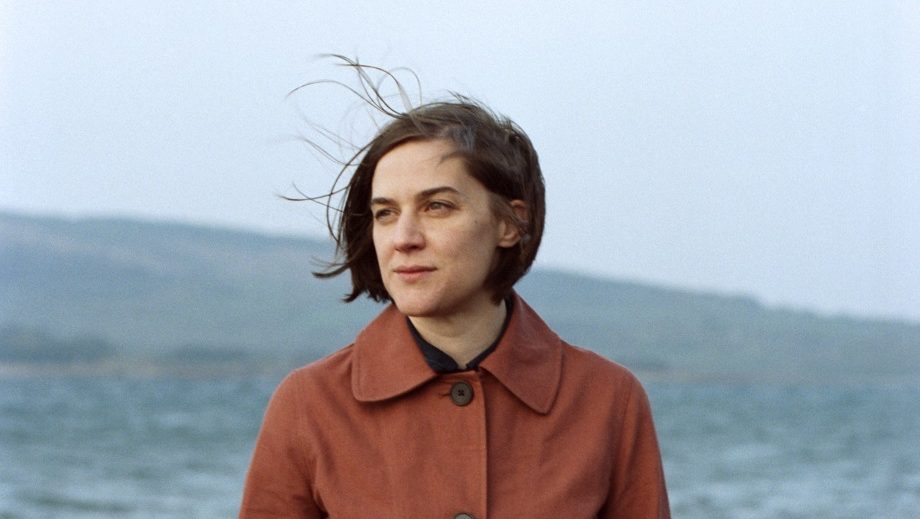The Gibson Brothers are one of the tried-and-true mainstays of the contemporary bluegrass scene, and it’s no wonder why: With masterful, Monroe-style instrumentation and suits to match, they’re the picture of a sharp-dressed, classic bluegrass band. But their background — in the world of traditional bluegrass music, anyway — could hardly be more unorthodox.
Eric and Leigh Gibson grew up on a dairy farm in Upstate New York just a couple miles from the Canadian border. Gritty, mid-’80s New York City was only a few hours South, but they felt like outsiders in their home state’s cultural capital. They were raised on their father’s regimen of classic country music and daily farm labor. Their farmhouse got Canadian public access channels instead of MTV — Gordon Lightfoot instead of Michael Jackson, with a healthy dose of French Canadian fiddle music thrown in. Turns out the Stanley Brothers and Lester Flatt’s stories of rural life made them feel right at home. They didn’t miss the mainstream stuff.
But when they traveled South, they felt like outsiders all over again. At some traditional bluegrass festivals — places where “drink” and “bank” make a tidy rhyme, and the stars and stripes may be the second-most common red, white, and blue flag — they represented a special subset of foreigners called “Yankees.” Even there, they quickly gained respect. A boatload of IBMA Awards soon added the exclamation point. Their bluegrass success is a testament to their farm-style hard work and that timeless synergy of two brothers singing close harmonies. Also — sorry to bury the lede here — they write really good original songs. That probably has something to do with it.
I planned my conversation with Leigh Gibson expecting to talk about traditional bluegrass. Based on their appearance and the festivals they play — and, yes, their reverence for old bluegrass music — they’ve been neatly pre-categorized as “traditional” bluegrass. But when I listened to their record I had to remind myself: The easy distinction between traditionalists and progressives is as convenient as it is misleading. Like the Steep Canyon Rangers or Balsam Range or, for that matter, the Del McCoury Band, the Gibson Brothers only look the part of rigid traditionalists. They write songs reminiscent of Robbie Robertson or Bruce Springsteen just as often as the Stanley Brothers. Sure, they have a banjo in the band, but the interesting part is what they’re doing to expand the vocabulary of their chosen form.
Being a bluegrass band doesn’t make them just a bluegrass band. The Gibson Brothers are a good reminder that some folks with mandolins and banjos should be considered, first, as a great band, regardless of genre. Then you can call them bluegrass.
Let’s talk about In the Ground. I’ve been jamming to this for the last few days. It’s a great record. This is the first album of original tunes since 2011, right?
Right. And it’s the first one that’s all original. Eric and I, early on, were covering Stanley Brothers and Bill Monroe, plus doing songs of the popular bands of the day, just trying to figure it out. As a really young picker — I don’t know if this is true for everybody — I didn’t have as much to say. I’d write a little bit, but it wasn’t the same thing it is today, where you feel like you have something to say and you can stand behind it after you say it.
So how did you make that process happen? How did you graduate from playing classic songs and learning to play other people’s licks to having your own sound and something to say?
As far as the sound goes, we were so far removed geographically from the center of things. Growing up in northern New York State, there wasn’t really a template. We didn’t come up in someone else’s band and then start our own band. I don’t want to call it peer pressure, because that’s not what it is — but we weren’t as affected by the question of what is bluegrass, what is the contemporary sound of bluegrass, because we weren’t picking with anybody who had any idea what that meant. We were mostly playing with French Canadians at fiddle contests who liked the banjo. We would go into Quebec into these jam sessions at someone’s house — some of these folks didn’t even speak English. It was a different sort of gateway into the music profession, for sure. But it was really cool sitting there singing old country songs, classic country from the ’50s and early ’60s. So we went North first before we went South.
I hadn’t thought of the geographic closeness of French Canada and the fiddle tradition there, but that makes a lot of sense.
We were exposed to Canadian television and radio because we grew up in such close proximity to the border. We were just two miles away. Behind our family farm, which started in 1860, there was nothing but woods and then the border. So we grew up watching Canadian television and we were exposed to a lot of Canadian artists — Gordon Lightfoot and others. And we might see some Opry stars on Canadian television, like Charlie Louvin or the Osborne Brothers, who had a bluegrass pedigree.
So this was the mid-’80s. What else was in the air at the time? Was it Michael Jackson and Cyndi Lauper? Were you exposed to that mainstream stuff, too?
Growing up like we did where we did, we didn’t have MTV. My wife is just a year-and-a-half younger than me and she grew up in downstate New York. She was totally influenced by MTV and that part of the culture. But not us. What I was hearing for rock ‘n’ roll was coming out of Montreal.
So for a lot of people your age — growing up on MTV — bluegrass might have felt exotic and old fashioned. But it sounds like it was closer to what you’d been exposed to as a kid, with the Canadian fiddle music, Canadian radio, and old country music.
Yeah, I didn’t feel so much like an oddball in bluegrass. At that point in time, if you were listening to country radio as we were, just when we were getting into the music — that’s when [Ricky] Skaggs was breaking out. All those influences from his bluegrass pedigree came into his country songs. It was a validation happening, in my mind, for what we were trying to do with these instruments — learning banjo and guitar and singing Flatt & Scruggs and Monroe. So I wasn’t missing the Cyndi Lauper stuff.
So even though you were in the same state as New York City, this cultural capitol of the world producing all these big modern stars, you felt closer to Canadian fiddle music and old country music. But then bluegrass was composed of mostly Southerners, so you were kind of both culturally inside and outside.
Yeah, that’s a good way to put it. At the time, I didn’t feel like we were outside. You have to remember, we were living on a dairy farm. My father worked that farm 365 days a year, so we didn’t travel much. We’d find bluegrass radio stations — it was back in the cassette days. We would record a Sunday night radio broadcast out of Ottawa. We didn’t get the station really well, but at night in the summertime you could get it. So we’d hit record and listen to those shows throughout the week on that cassette.
That reminds me of stories you hear old bluegrass musicians tell. Folks would gather around the family radio in the living room and listen to the Grand Ole Opry. Why do you think y’all were drawn to country and bluegrass radio?
Once you get up above Poughkeepsie, New York gets really country. We were six hours north of New York City. They’re country people up there. There are mining communities. I think it’s more closely related to Appalachia than people would think.
So the North/South divide is the wrong spectrum to think about. It’s more the urban/rural divide?
I think so. I was never apprehensive about going to the South, but every time I cross the George Washington Bridge, I still get a tightness in my chest, like, “Oh, boy! Here we go!”
[Laughs] Even as a native New Yorker.
New York is exciting if you’re not bringing a car, but I still feel that way. Like that is a different world.
Sure, but thinking of that North/South divide, I mean, if I took a friend from New York City to a rural North Carolina bluegrass festival with funnel cake and chewing tobacco and banjo music, they would be like, “Where the hell am I?”
True, true. And I sometimes forget because I’ve been to so many of those things. I do remember the first couple Southern Virginia festivals we played. You just couldn’t feel like you fit in, because — it was our first time being around Confederate flags flying at every campsite, and the only compliment you’d get is, “You guys are okay. For Yankees.”
Well, I guess that’s a really high compliment for some people!
[Laughs] Yeah, and they meant it! You know, the second or third time they’d see you they would come up and say, “Tell me true, now, you’re mama is from down here, right?”
That’s awesome. So, in other words, you passed the test. You weren’t dismissed for being Yankees because you got the music.
And when we first started, we were paying tribute to their music more than our own. Obviously we’d sing a little different, since we grew up talking around different people, learning how to speak and sing from different people. But we were singing Bill Monroe or Stanley Brothers or Jim & Jesse, so we didn’t introduce ourselves to them immediately. We didn’t know who we were at the time.
So, at that point, you started developing as a bluegrass band by hanging around bluegrass bands in the South? That’s how you developed your sound, too?
I think it was unavoidable that the rhythmic feel of, say, the Lonesome River Band or Nashville Bluegrass Band would creep into my guitar playing or Mike Barber’s bass playing. We listened to Sam Bush a lot. Of course, New Grass Revival was on country radio in the late ’80s. And Peter Rowan was a big one. Every one of those bands have great vocals, great songs, and can play. We were trying to figure it out like anybody would. Like when a rock band first hears the Beatles. They’re going to try and emulate that sound. So we did the same thing.
What are you listening for when you hear a great bluegrass band? Or, rather, what is it that makes a great bluegrass band great?
I guess the same could be said for any kind of music, what I’d listen for. It’s almost like you’re listening for purpose. There are people with great voices, but you still can’t stay engaged with what they’re singing about or what they’re saying. It doesn’t feel like it demands to be listened to. But look at Willie Nelson. He’s not the best singer in the world, but he makes you believe it. Del McCoury has that. There’s purpose there. You believe what they’re singing about.
Is it a question of authenticity?
Yeah, maybe. They’re authentic for sure. And the band doesn’t have to be full of the best pickers on each instrument, if it has that collective thing that makes you sit up and take notice.
Where do you think the Gibson Brothers’ sounds fits into the full picture of modern bluegrass?
I think we’re seen by most people as being traditional bluegrass. It has something to do with our configuration — we have mandolin, fiddle, guitar, banjo, and upright bass. That’s the instrumentation we’ve chosen, and the people we’re surrounded by, but I still don’t really approach it like a bluegrass band. It’s become more about us and our story. More about the catalogue of songs we’ve written and play at shows. I think those songs would still hold up if we had different instrumentation, because we believe in the songs so much.
So you’re saying that a bluegrass band is chasing after something authentic and honest, like any kind of band. They just happen to have fiddles and mandolins and banjos.
It’s true. Because those are the instruments we learned. What if my father had had a trumpet under the bed instead of a banjo that we could’ve learned on? It was a mix of timing and location that put us where we are today.
Why did a northern New York dairy farmer have a banjo?
He wanted to learn to play. He liked a lot of kinds of music — he had Mac Wiseman and Lester Flatt records. You know, that old stuff like, “’Tis Sweet to Be Remembered.” Classic stuff. He liked Celtic music a lot, too. At some point, the dairy farmer who was enjoying Celtic music and a little bit of country decided he was going to order a banjo from Montgomery Ward. So he did.
I noticed one of the songs on the new record, “Everywhere I Go,” was co-written with Eric’s son, Kelly, so it seems like he’s maybe following in your footsteps. Would you encourage your kids to become working musicians?
If it would make them happy, I wouldn’t discourage them. Let me put it that way. It would please me if I could make music with my children. But here’s the father in me — only if they approached it like a professional and worked hard, not just because they want to sleep in until noon. The way we grew up on the farm, it was hard work every day. They’re not learning that first hand, exactly — I mean, we’re not splitting wood to heat the house — but I think about how to show them what hard work can do for you. Hopefully they recognize that example in our career, that it’s hard work and it pays off.
I’m thinking of the title track, “In the Ground,” where you’re lamenting the loss of the family farm. That family farm seems like a big part of your story, going way back to your grandparents and great-grandparents, etc. Is that what you miss about that lifestyle, the ethic of hard work that came along with it?
For sure. The farm teaches you that hard work doesn’t guarantee success. You can’t control the weather. The music industry is like that. There are things you can’t control. But if you don’t do the work, you won’t have any success. That’s the best thing our dad gave us, a really strong work ethic …
When the farm was still there and my father was still working it, it was fresh in my mind. That life was still there to me. Then my father passed away, so that connection was frayed, and then you feel more and more disconnected from that life. Suddenly you start looking for it, and you’re a couple of decades removed from what was already a bygone era that we were living. Now I can’t find that connection. I don’t miss having to do it every day, 365 days a year, but I wouldn’t trade it for the world.
Seems like that feeling really connects you to a tradition in bluegrass songs. You know, longing for the old cabin home, reminiscing about Uncle Pen — or a newer song like “Old Home Place” written in the ’70s. Mourning that connection to the land and to tradition that’s been lost.
Yeah, you think about Monroe writing “On My Way Back to the Old Home,” missing home when he was in Chicago living a different life. That’s kind of what I’m doing. If that farm in that same location still could’ve provided a living for the next generation, one of us probably would’ve taken it over. There’d be no Gibson Brothers. So it’s not a lifestyle I would’ve run away from, if my father hadn’t told us from an early age that it wasn’t going to happen.
Why wasn’t it possible anymore?
Back in the day, you could have three cows and consider yourself a dairy farmer, if you were selling a little bit of milk. You didn’t need much land. But in the ’80s and ’90s, the milk prices were falling as costs were going up. In order to stay in business, a farmer had to grow and grow, adding hundreds of cows. Then you’re deeper in with the bank and milk prices drop again, so what do you do? … When my father came along, he had come to the end of the line of what was productive and profitable. It’s nobody’s fault. It’s just the way it happened. Sorry, I didn’t mean for this to become a lesson in the dairy industry …
No, it seems like important background. It strikes me that you’re almost telling the quintessential story of the American South and the way it was defined by change in the middle of the 20th century — but you grew up on the Canadian border in the 1980s. That’s wild.
True, yeah. That’s probably true. I think we have a lot in common with Appalachia historically.
Thinking of that track, “In the Ground,” and the tradition in bluegrass music of longing for an earlier time, I can imagine some kid from New York City or California who doesn’t know about bluegrass hearing that nostalgia for a better, bygone American era and being reminded of hateful, exclusive political rhetoric that also talks about getting back to a golden era. How do you convince them that’s not what you’re talking about?
I feel like our music … yes, it’s about the good old days and, yes, it has some nostalgia, but it’s our nostalgia. Although it has some common ground with traditional bluegrass, we really do sing about us. But how would I convince some 22-year-old kid in New York City? That’s a good question.
So you’re telling an honest story that comes from your own life. Maybe that’s all we can ask of any artist.
Yeah, that’s what we’ve grown into. Being our age, in our mid 40s now, we’re looking back and realizing what we’ve lost. That comes later when you get older and have children. Earlier, when you asked about the acts we love in bluegrass, it was about feeling like their songs meant something to them, that they were being authentic. That’s what I hope we’re being. We’ve spent a long time becoming us. It’s all we really know how to do.



